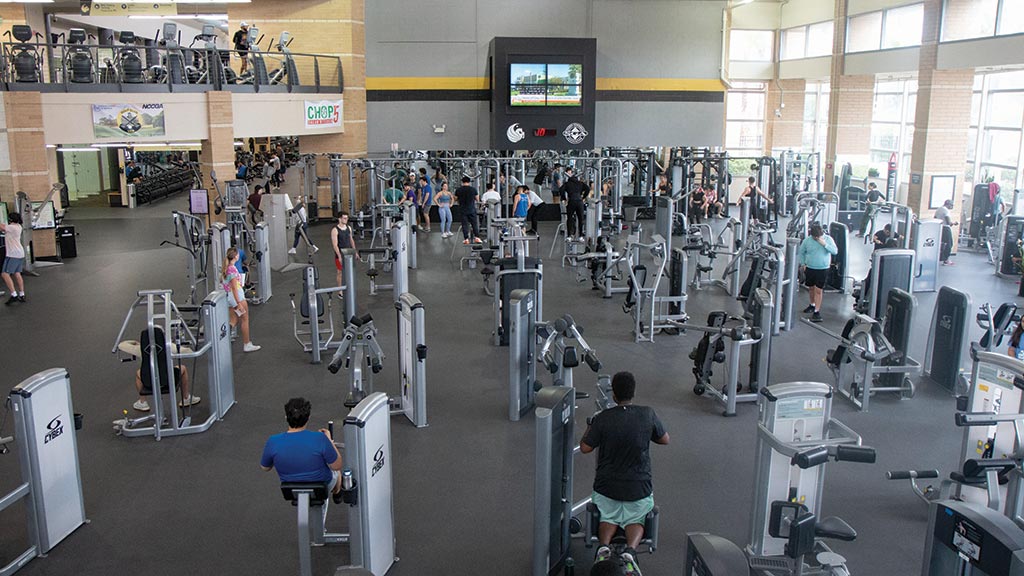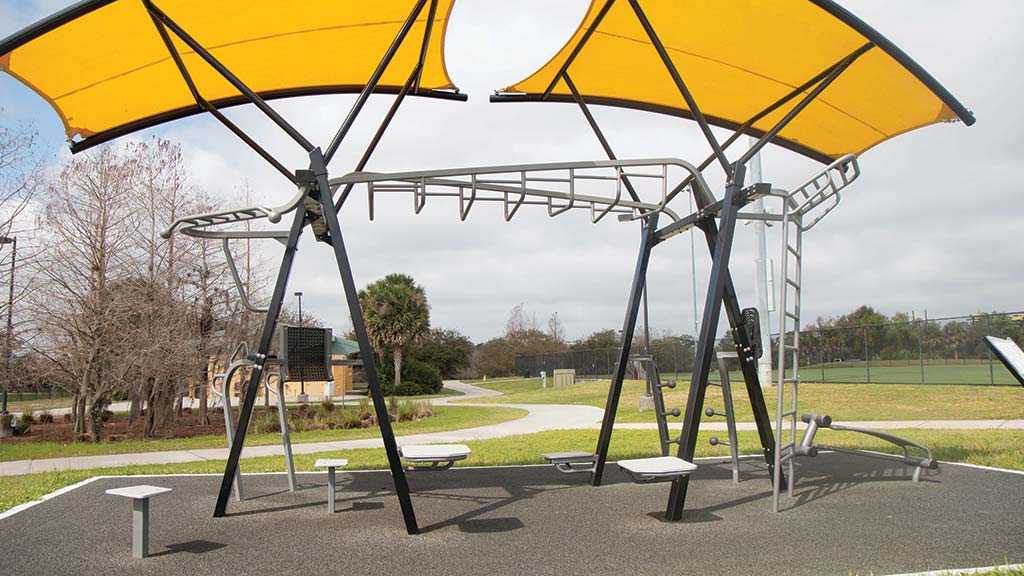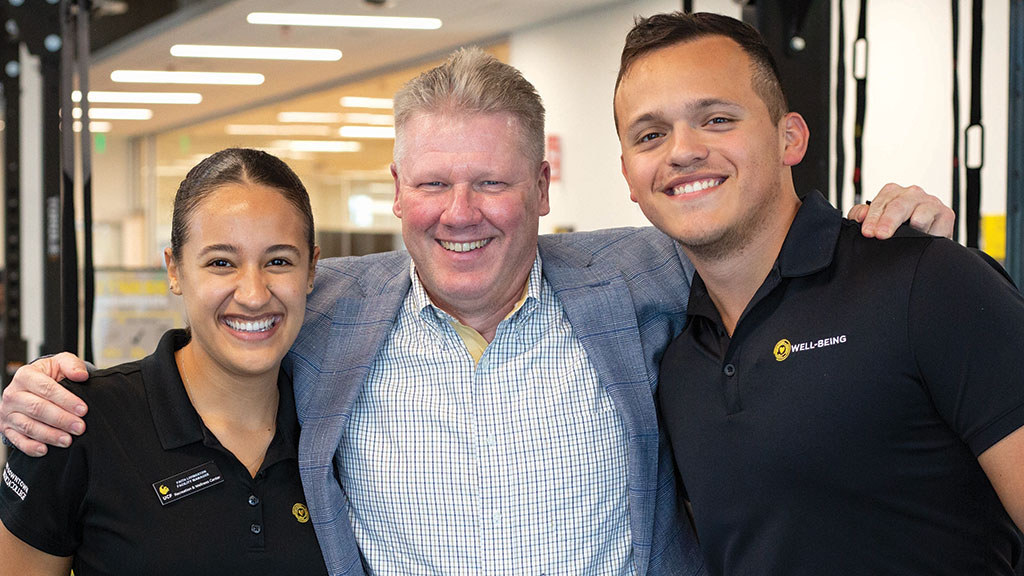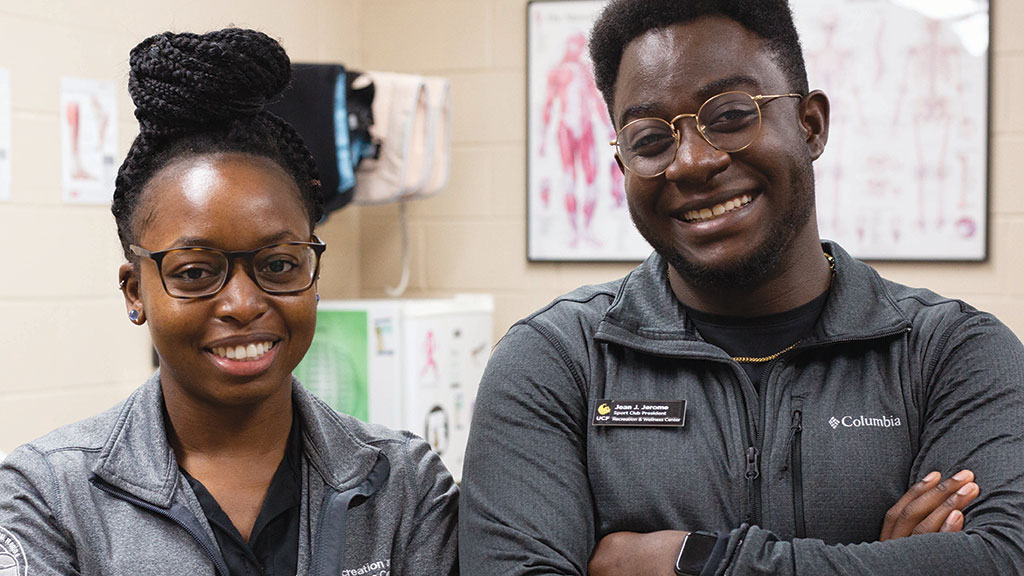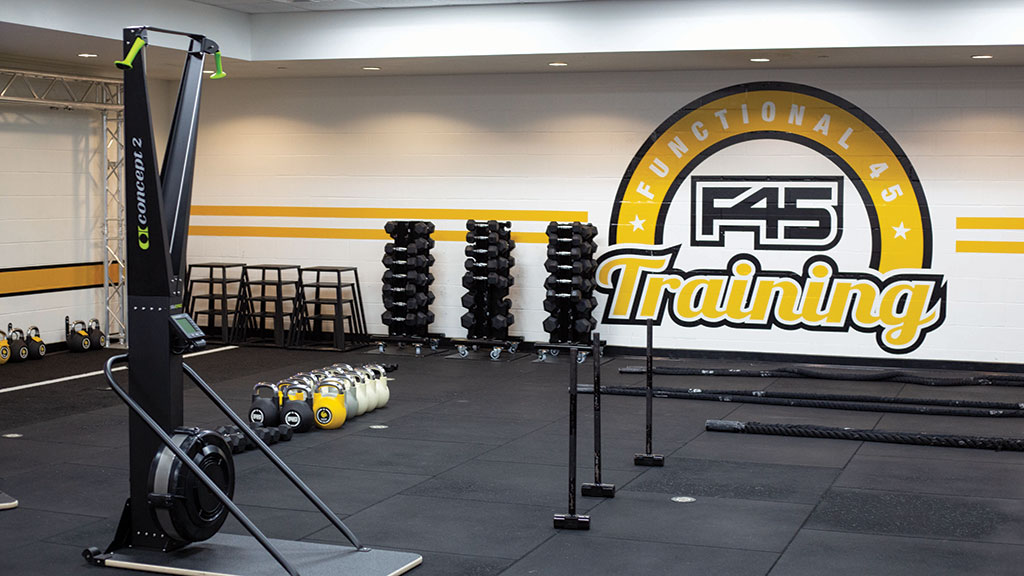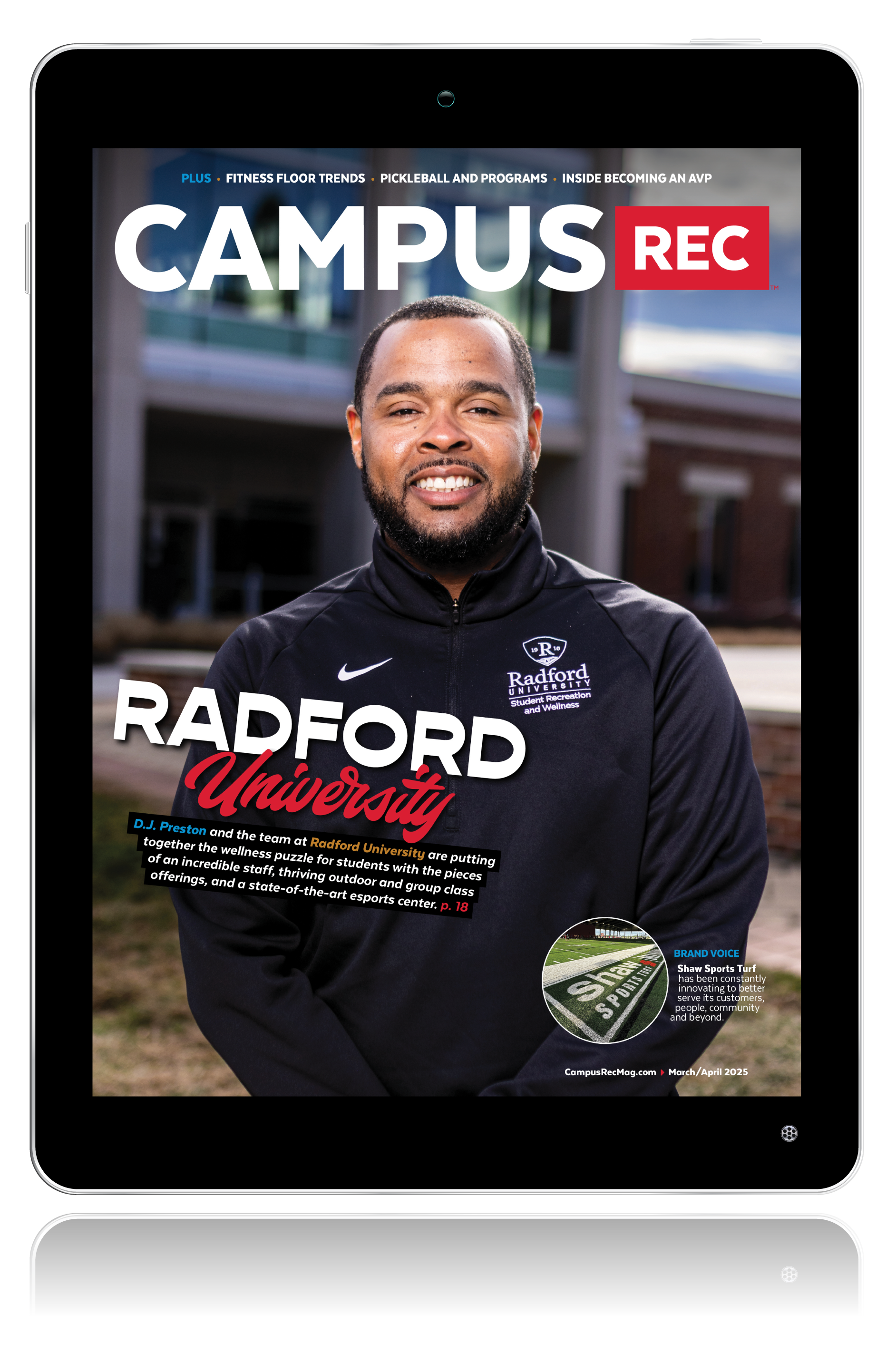One day, Vladimir Voyard-Tadal walked into the Recreation and Wellness Center (RWC) office at the University of Central Florida (UCF) looking to become a basketball referee.
Upon voicing his interest, he was pointed toward the Basketball Officiating program.
“I first joined the class as a participant in 2003 midway through,” said Voyard-Tadal. “While in that class, I learned a whole new perspective on sports and fell in love with officiating. This was a way for me to stay involved in the game since I could not play anymore. I gained valuable experience from the instructors and saw the passion they had for officiating.”
Fast-forward to 2022 and Voyard-Tadal is a NCAA Tournament basketball official, with previous experience in the NBA G League. He has also returned to UCF’s Basketball Officiating program as an instructor.
UCF’s Basketball Officiating Program
However, he is not alone in his success nor continued participation after taking the class. Jim Wilkening, the executive director of Recreation and Wellness, said the program completed its 25th year and has had many graduates move on to be top officials at the high school, collegiate, national and Olympic level.
UCF students can take the class for $30; non-students can participate for $75. It is about two-thirds students, one-third people from the community. The class runs one night a week for nine weeks. Participants meet for four hours, going over rules, hearing guest speakers and spending two hours officiating games they review.
But, the program’s history goes back further than its time at UCF. It started at Valencia College under founder Don Rutledge, who is still a guest speaker for the program. In fact, Wilkening said that’s what makes the program so successful: the experienced instructors who volunteer their time to teach.
And for the instructors, it’s worth it. “Watching students’ progress in just nine weeks is amazing,” said Voyard-Tadal. “The look in their eyes when the light bulb clicks is one of the best feelings you can experience as an instructor.”
The second piece to success lies with the participants. “The people who sign up for the class really want to take it,” said Wilkening. “So, when you have people who really want to do things, they’re going to learn, get better and grow.”
While the Basketball Officiating program has been around for 25 years, there are other parts of the RWC that have not. Instead, some parts are brand new as students’ needs have changed.
Changes in the RWC
One of those deals with equipment and space. Wilkening shared they’ve recently reduced their cardio pieces and added functional training space based on usage and student input.
And during the COVID-19 pandemic, students were clamoring for outdoor fitness areas. So, they added the THRIVE 450 from GameTime, also based on student input.
It seems UCF knows things can’t stand still if it’s to remain relevant. And the Basketball Officiating program isn’t standing still either. It’s evolving and adapting, just like the rest of UCF.
EXTRA CREDIT: Two campus rec professionals discuss the future of functional training and how to safely navigate its extremely social nature once facilities reopen.
Wilkening said during the Fall 2021 program he brought in Andrea Snead, the director of Diversity and Inclusion at the United States Tennis Association and former RWC staff member, to talk about equity, diversity and inclusion (EDI).
“It was a risk,” said Wilkening. “I had people in the community taking the class and I didn’t know if they were going to say, ‘Hey, I didn’t pay for this. I wanted to take basketball officiating. What’s this diversity stuff?’ Instead, we had this phenomenal dialogue that took place and it went very well.”
The Adaptive and Inclusive Program
Another way UCF is changing and evolving with time and student need is through the Adaptive and Inclusive program. Ashley Allen, the marketing and communications manager, oversees it.
Allen explained they started the program to increase the diversity of RWC participants. “Learning about inclusive efforts through research, community recreation and peer institutions provided the opportunity to create programs and partnerships that engaged demographics of students who were not participating,” she said.
One specific effort is the Student Assisted Workout Program (SAW). Allen shared over 25% of adults in the U.S. have a disability. So, SAW pairs students with disabilities with an workout partner who is enrolled in the UCF Doctorate in Physical Therapy program. “This partnership was a key element in the continued growth of adaptive recreation, including the expansion of adaptive sports, adaptive climbing and other inclusive equipment purchases,” she said.
While heading up the Adaptive and Inclusive program, Allen has learned two key lessons. First, inclusion efforts must be intentional to be successful — assess and then use that information.
Second, partnerships are essential. “To reach demographics that are not participating in our programs, nurturing partnerships with university departments will provide the opportunity for collaboration and direct interaction,” said Allen.
EDI is Part of UCF’s Culture
But EDI doesn’t exist in just one program. It is part of UCF’s culture and all of its offerings. Take the F45 program, for instance. Introduced in the spring of 2019, it is arguably the most popular fitness program at the RWC. “It’s been a home run,” said Wilkening. “Students love it.”
However, when it first started on campus, Wilkening said they softened some of the language to make it more inclusive. “We wanted to make sure it meshed well with our goals — really Goal Two of diversity and inclusiveness,” he said.
That second goal is also clearly seen in UCF’s downtown campus. Partnering with Valencia College, the campus is looking to connect with the local community and provide opportunities not currently found there — from education all the way to accessible food.
EXTRA CREDIT: A panel of campus rec professionals came together for the virtual roundtable “Equity, Diversity and Inclusion: Creating Lasting Change.”
Another way EDI permeates the culture of UCF takes place in staffing. Wilkening said they closely evaluate their demographics of users and RWC staff compared to the overall demographics of student enrollment.
If they see a demographic drop, they will increase efforts of recruitment, marketing or promotion to reach that population. “It all goes back to the concept of people are going to go to places where people look like themselves,” said Wilkening. “If our student employees are representing the diverse students of UCF, then the student users are going to be more comfortable coming into an environment where people look like themselves.”
Hiring and Success
In fact, hiring is tied to the success of the RWC in a big way. “It all starts with who you hire,” said Wilkening.
He explained further, sharing how he doesn’t motivate staff but rather hires staff with motivation, and then tries not to ruin their motivation.
But, he hasn’t got it right every time. Wilkening shared he’s hired qualified people for a job only to find out they weren’t hungry for it. “To have someone who’s really trying to get that skill and develop themselves, and they really want to be in your environment, you’re going to have someone hungry to do a good job,” he shared.
An Attitude of Development
After hiring, it’s then taking care of your staff. Sarah Hunt, the associate director of Facilities, said the attitude around development is that it’s an ongoing endeavor at UCF.
“The team also recognizes one size does not fit all, thereby making development pathways clear within each specialty area,” said Hunt. “Offering staff flexibility to explore a wider range of opportunities provided in various modalities empowers and motivates team members to keep sharing and evolving within the field of campus recreation.”
The same is true for student staff. Gary Cahen, an associate director of Programs at RWC, said they started the “Knights Leadership Series” 10 years ago as with over 400 employees and limited resources, not everyone can go to a conference.
“We designed an internal series of leadership presentations that students could attend over the course of a semester,” he explained. “Our GAs and professional staff present on a variety of topics and students are incentivized to attend. By the end of the semester students from all areas get an entire conference experience.”
With development running throughout student and professional staff, it seems the team embodies what the RWC does as a whole: the idea of not staying the same. Development must happen if positions, programs and lives are to improve.
But it takes people willing to try something new. And as Wilkening shared, the team at UCF refuses to stay stagnant in order to best serve students. “We are not a place that has been around for 150 years and always rolls out the same offerings,” he said. “Our youth is our strength as we have always had a team that brings in new perspectives and a leadership willing to try new things.”



